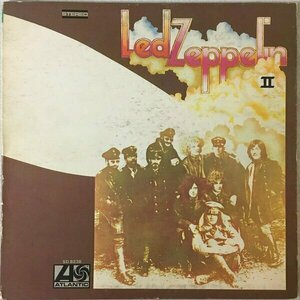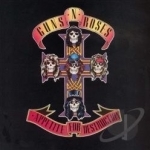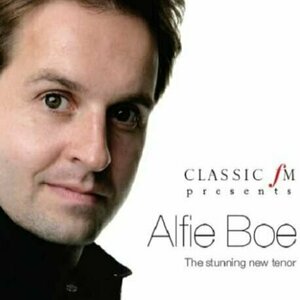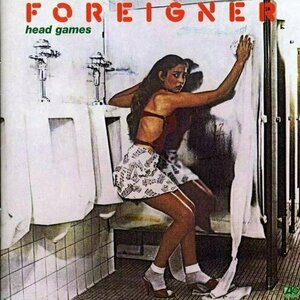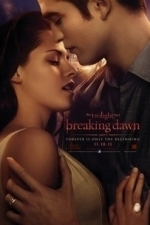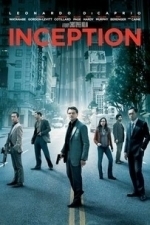Search
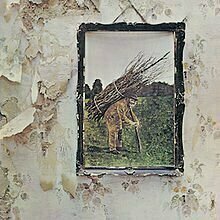
Led Zeppelin IV by Led Zeppelin
Album
Untitled is the fourth studio album by the English rock band Led Zeppelin. Commonly known as Led...
Mick Hucknall recommended Led Zeppelin 2 by Led Zeppelin in Music (curated)
Gene Simmons recommended Appetite for Destruction by Guns N' Roses in Music (curated)
Ian Anderson recommended Classic FM Presents... by Alfie Boe in Music (curated)
Ian Anderson recommended Head Games by Foreigner in Music (curated)
Movie Metropolis (309 KP) rated The Twilight Saga: Breaking Dawn Part 1 (2011) in Movies
Jun 11, 2019
Finally, a Twilight film that doesn’t have men in the audience going green with envy as they stare at Taylor Lautner’s washboard abs and finally, a Twilight film that doesn’t actually stink.
Of course, those of you familiar with my reviews know that I’m not fond of the Twilight Saga in the slightest, but here I’m prepared to eat my words as newcomer Bill Condon (Dreamgirls) directs a surprisingly enjoyable outing. Unfortunately, it all comes a bit late as this is the penultimate film in Stephanie Meyer’s book series.
Sadly, the Twilight films have never had the critical success of their Harry Potter cousins, probably due to their wooden acting, dire scripting and disappointing special effects, but here, Breaking Dawn Part 1 manages to be at least as good as the first two films of its wizarding counterpart.
The similarities between the two series’ don’t stop there. The decision to split the final book in the Twilight series was probably done because of the success Harry Potter had by splitting the final book into two films.
Here, Bill Condon manages to inject some life into the franchise with good acting, good special effects and finally, a good storyline. Edward (Robert Pattinson) and Bella (Kristen Stewart) have finally decided to tie the knot. Naturally, Jacob (Taylor Lautner) is less than pleased with this announcement and decides to run away in a fit of rage. Will he be back for the wedding? GASP!
Alas, he makes it and just before Edward whisks Bella on their honeymoon, some pleasantries are exchanged between the bride and the wolf. So, the honeymoon comes and Bella realises she’s pregnant; oh dear. The film then follows her journey to becoming a mother and the growing beast inside her. Thankfully, the point where the film is split doesn’t jar like it did in Harry Potter and the Deathly Hallows and seems to follow a natural ending.
The special effects have also upped their game for the latest instalment as the (still blatantly obvious) CGI werewolves look much more realistic. Also, the acting has improved leaps and bounds with Kristen Stewart being a real highlight. The realisation that motherhood could kill her is fantastically portrayed by Stewart, though the special effects making her look frail probably helped here.
Taylor Lautner is the best out of the male leads and does the role some justice, whilst Robert Pattinson is mediocre as Edward.
There’s still a problem with the films pacing however. It seems that events that would take 10 minutes worth of screen time in other films have to take 30 in the Twilight saga; it’s a major annoyance as it interrupts the flow of the film and the constant close ups of the characters’ faces grate after a while.
Also, Condon has clearly not directed many films that require action scenes. A major fight with the werewolves and the Cullen’s should have been a real highlight, but it’s a sloppily directed sequence with bodies mashing together. You’re unsure as to who is who, a problem which blights the Transformers film series.
Thankfully there are numerous highlights, the shots of Rio are breath-taking and Bella giving birth is truly horrific, you can’t take your eyes of the screen for a second. Also worth a mention is a part where the werewolves are running through the forest and end up in a logging plant. It’s a fabulous sequence that really makes you grip your seat.
The Twlight Saga: Breaking Dawn Part 1 is a good film. It finally makes use of the promising source material it has been blessed with and it’s pleasing to see that a good sense of direction is all it takes to turn around the fortunes of a film series. It’s far from perfect, with sloppy action scenes and terrible pacing, but finally, I left the cinema with a sense of happiness – I’m actually looking forward to part two. (I can’t believe I just said that.)
https://moviemetropolis.net/2011/11/27/the-twilight-saga-breaking-dawn-part-1-2011/
Of course, those of you familiar with my reviews know that I’m not fond of the Twilight Saga in the slightest, but here I’m prepared to eat my words as newcomer Bill Condon (Dreamgirls) directs a surprisingly enjoyable outing. Unfortunately, it all comes a bit late as this is the penultimate film in Stephanie Meyer’s book series.
Sadly, the Twilight films have never had the critical success of their Harry Potter cousins, probably due to their wooden acting, dire scripting and disappointing special effects, but here, Breaking Dawn Part 1 manages to be at least as good as the first two films of its wizarding counterpart.
The similarities between the two series’ don’t stop there. The decision to split the final book in the Twilight series was probably done because of the success Harry Potter had by splitting the final book into two films.
Here, Bill Condon manages to inject some life into the franchise with good acting, good special effects and finally, a good storyline. Edward (Robert Pattinson) and Bella (Kristen Stewart) have finally decided to tie the knot. Naturally, Jacob (Taylor Lautner) is less than pleased with this announcement and decides to run away in a fit of rage. Will he be back for the wedding? GASP!
Alas, he makes it and just before Edward whisks Bella on their honeymoon, some pleasantries are exchanged between the bride and the wolf. So, the honeymoon comes and Bella realises she’s pregnant; oh dear. The film then follows her journey to becoming a mother and the growing beast inside her. Thankfully, the point where the film is split doesn’t jar like it did in Harry Potter and the Deathly Hallows and seems to follow a natural ending.
The special effects have also upped their game for the latest instalment as the (still blatantly obvious) CGI werewolves look much more realistic. Also, the acting has improved leaps and bounds with Kristen Stewart being a real highlight. The realisation that motherhood could kill her is fantastically portrayed by Stewart, though the special effects making her look frail probably helped here.
Taylor Lautner is the best out of the male leads and does the role some justice, whilst Robert Pattinson is mediocre as Edward.
There’s still a problem with the films pacing however. It seems that events that would take 10 minutes worth of screen time in other films have to take 30 in the Twilight saga; it’s a major annoyance as it interrupts the flow of the film and the constant close ups of the characters’ faces grate after a while.
Also, Condon has clearly not directed many films that require action scenes. A major fight with the werewolves and the Cullen’s should have been a real highlight, but it’s a sloppily directed sequence with bodies mashing together. You’re unsure as to who is who, a problem which blights the Transformers film series.
Thankfully there are numerous highlights, the shots of Rio are breath-taking and Bella giving birth is truly horrific, you can’t take your eyes of the screen for a second. Also worth a mention is a part where the werewolves are running through the forest and end up in a logging plant. It’s a fabulous sequence that really makes you grip your seat.
The Twlight Saga: Breaking Dawn Part 1 is a good film. It finally makes use of the promising source material it has been blessed with and it’s pleasing to see that a good sense of direction is all it takes to turn around the fortunes of a film series. It’s far from perfect, with sloppy action scenes and terrible pacing, but finally, I left the cinema with a sense of happiness – I’m actually looking forward to part two. (I can’t believe I just said that.)
https://moviemetropolis.net/2011/11/27/the-twilight-saga-breaking-dawn-part-1-2011/
Justin Patchett (42 KP) rated Inception (2010) in Movies
Mar 13, 2019
Masterful visuals, including many practical effects wonders (1 more)
Extraordinary score by Hans Zimmer
Relationships bud in the film, but feel forced (1 more)
A few plot-holes, albeit none thoroughly distracting
Contains spoilers, click to show
With two of the most scathing reviews I’ve written under my belt, I figured it was time to write about my favorite movie of all time, Christopher Nolan’s “Inception.”
“Inception” revolves around Dom Cobb (Leonardo DiCaprio), a spy who uses military-grade technology and shared dreams to extract information from his marks. He and his team are unwittingly tested by their latest target, Mr. Saito (Ken Watanabe) for recruitment into a different kind of job: Inception, a type of job using the same skills and technology to implant an idea. In particular, Saito calls on Cobb to plant an idea on his business competitor, Robert Fischer (Cillian Murphy). In spite of his reluctancy about this type of job, Saito’s offer to clear Cobb of a murder charge sways Cobb in favor of taking the job.
Cobb gathers new help, including Ariadne (Ellen Page), an architect he finds capable of creating complex labyrinths. With the help of a deep sedative, the team is able to make Fischer have dreams within dreams within dreams, a method that makes the mark more receptive to the implanted idea. It comes with a cost, though: The dreams become more unstable as they continue going deeper into the dream world, and the sedative itself creates the risk of actual death within the dream.
First of all, let’s talk cast. Already, we’ve got four top-grade talents named, but we also have Joseph Gordon-Levitt as Arthur, Cobb’s point man, Tom Hardy as Eames, a forger, and additional roles filled by Marion Cotillard and Michael Caine. Nolan did not lack for talent in this one, and by gosh it shows.
Visually, “Inception” excels most with making the impossible as real as cinema can make it. Throughout the film, characters are able to manipulate the rules of the dream world, making for moments where fruit explodes, cities bend, and stairwells become endless. Beyond portraying the impossible, though, the film has to show the real world, too. In those scenes, an aesthetic that can’t exactly be placed takes over. The technology has a slightly retro-futuristic feel to it, while the fashion and settings rely on classic tastes. Even Hans Zimmer’s score, which samples from the work of vocalist Edith Piaf, contributes to the chronological ambiguity of the movie. By not being able to place the film’s setting in any particular year or even decade, it seems prepackaged to become a classic film.
Speaking of Zimmer, he’s is at his best with this score. The complexity of the film reflects in a layered score, and listening to it on its own is its own sort of treat. It’s one of those symphonic recordings that the listener will pick out something they never noticed before every time.
But even above the stellar cast and visuals that have inspired reality-bending sequences in films since, this film’s biggest success is its use of approachable themes and concepts to tell a story within a story. Nearly a decade after its initial release, fans have widely circulated the idea that “Inception” is a film about storytelling. Concepts as basic as nesting stories within stories play out many ways across the plot. It also plays with common experiences in dreams, turning experiences like the feeling of falling into tools for Cobb’s team to exploit. Essentially, if you can dream, you already have a primer in this film’s core principles.
It’s not without flaws, as no film is. Certain moments fail to hold up upon closer inspection. For instance, the relationship between Ariadne and Arthur comes across forced. Those moments aside, from its foreshadowing opening to its meaningfully open-ended ending, “Inception” is an absolute marvel.
“Inception” revolves around Dom Cobb (Leonardo DiCaprio), a spy who uses military-grade technology and shared dreams to extract information from his marks. He and his team are unwittingly tested by their latest target, Mr. Saito (Ken Watanabe) for recruitment into a different kind of job: Inception, a type of job using the same skills and technology to implant an idea. In particular, Saito calls on Cobb to plant an idea on his business competitor, Robert Fischer (Cillian Murphy). In spite of his reluctancy about this type of job, Saito’s offer to clear Cobb of a murder charge sways Cobb in favor of taking the job.
Cobb gathers new help, including Ariadne (Ellen Page), an architect he finds capable of creating complex labyrinths. With the help of a deep sedative, the team is able to make Fischer have dreams within dreams within dreams, a method that makes the mark more receptive to the implanted idea. It comes with a cost, though: The dreams become more unstable as they continue going deeper into the dream world, and the sedative itself creates the risk of actual death within the dream.
First of all, let’s talk cast. Already, we’ve got four top-grade talents named, but we also have Joseph Gordon-Levitt as Arthur, Cobb’s point man, Tom Hardy as Eames, a forger, and additional roles filled by Marion Cotillard and Michael Caine. Nolan did not lack for talent in this one, and by gosh it shows.
Visually, “Inception” excels most with making the impossible as real as cinema can make it. Throughout the film, characters are able to manipulate the rules of the dream world, making for moments where fruit explodes, cities bend, and stairwells become endless. Beyond portraying the impossible, though, the film has to show the real world, too. In those scenes, an aesthetic that can’t exactly be placed takes over. The technology has a slightly retro-futuristic feel to it, while the fashion and settings rely on classic tastes. Even Hans Zimmer’s score, which samples from the work of vocalist Edith Piaf, contributes to the chronological ambiguity of the movie. By not being able to place the film’s setting in any particular year or even decade, it seems prepackaged to become a classic film.
Speaking of Zimmer, he’s is at his best with this score. The complexity of the film reflects in a layered score, and listening to it on its own is its own sort of treat. It’s one of those symphonic recordings that the listener will pick out something they never noticed before every time.
But even above the stellar cast and visuals that have inspired reality-bending sequences in films since, this film’s biggest success is its use of approachable themes and concepts to tell a story within a story. Nearly a decade after its initial release, fans have widely circulated the idea that “Inception” is a film about storytelling. Concepts as basic as nesting stories within stories play out many ways across the plot. It also plays with common experiences in dreams, turning experiences like the feeling of falling into tools for Cobb’s team to exploit. Essentially, if you can dream, you already have a primer in this film’s core principles.
It’s not without flaws, as no film is. Certain moments fail to hold up upon closer inspection. For instance, the relationship between Ariadne and Arthur comes across forced. Those moments aside, from its foreshadowing opening to its meaningfully open-ended ending, “Inception” is an absolute marvel.
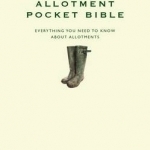
The Allotment Pocket Bible: Everything You Need to Know About Allotments
Book
Fancy having a go at growing your own produce? How do you improve your chances of getting an...
